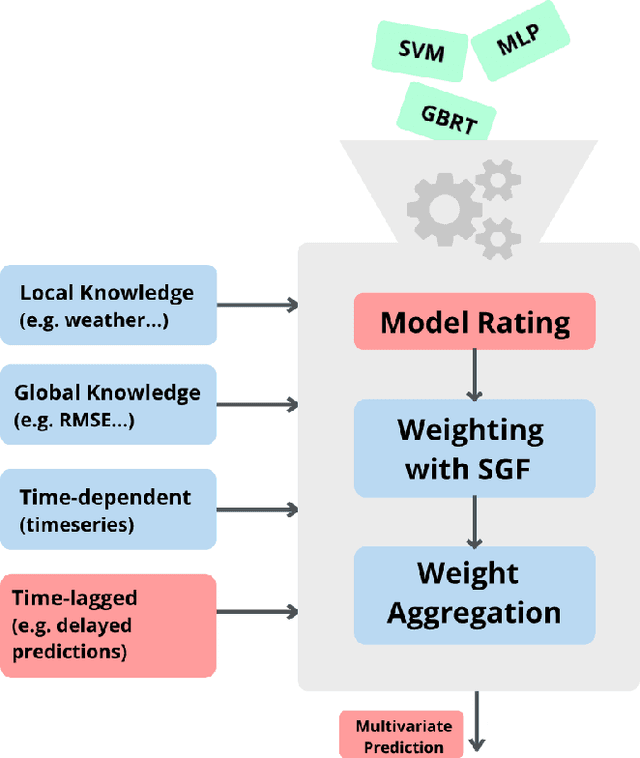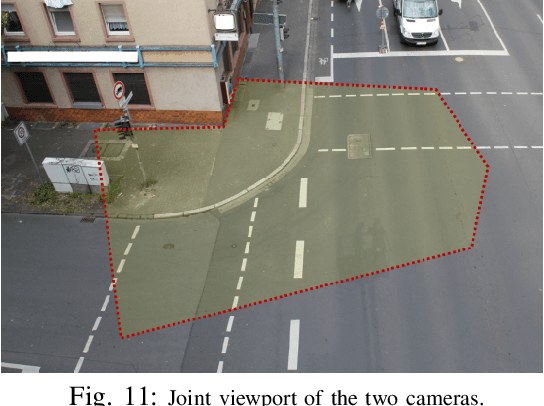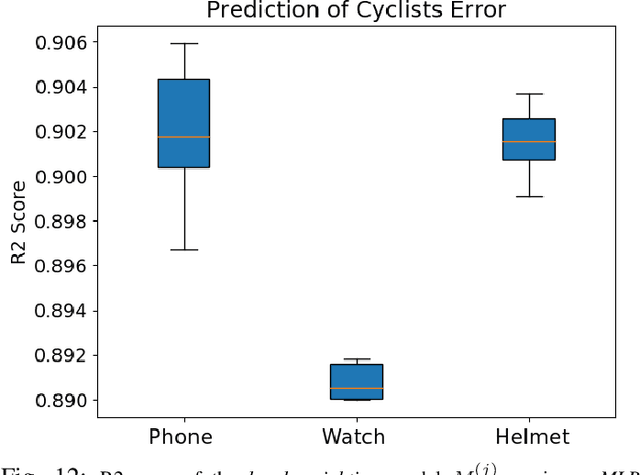Stephan Deist
Extended Coopetitive Soft Gating Ensemble
Apr 29, 2020



Abstract:This article is about an extension of a recent ensemble method called Coopetitive Soft Gating Ensemble (CSGE) and its application on power forecasting as well as motion primitive forecasting of cyclists. The CSGE has been used successfully in the field of wind power forecasting, outperforming common algorithms in this domain. The principal idea of the CSGE is to weight the models regarding their observed performance during training on different aspects. Several extensions are proposed to the original CSGE within this article, making the ensemble even more flexible and powerful. The extended CSGE (XCSGE as we term it), is used to predict the power generation on both wind- and solar farms. Moreover, the XCSGE is applied to forecast the movement state of cyclists in the context of driver assistance systems. Both domains have different requirements, are non-trivial problems, and are used to evaluate various facets of the novel XCSGE. The two problems differ fundamentally in the size of the data sets and the number of features. Power forecasting is based on weather forecasts that are subject to fluctuations in their features. In the movement primitive forecasting of cyclists, time delays contribute to the difficulty of the prediction. The XCSGE reaches an improvement of the prediction performance of up to 11% for wind power forecasting and 30% for solar power forecasting compared to the worst performing model. For the classification of movement primitives of cyclists, the XCSGE reaches an improvement of up to 28%. The evaluation includes a comparison with other state-of-the-art ensemble methods. We can verify that the XCSGE results are significantly better using the Nemenyi post-hoc test.
Coopetitive Soft Gating Ensemble
Aug 16, 2018



Abstract:In this article, we propose the Coopetititve Soft Gating Ensemble or CSGE for general machine learning tasks and interwoven systems. The goal of machine learning is to create models that generalize well for unknown datasets. Often, however, the problems are too complex to be solved with a single model, so several models are combined. Similar, Autonomic Computing requires the integration of different systems. Here, especially, the local, temporal online evaluation and the resulting (re-)weighting scheme of the CSGE makes the approach highly applicable for self-improving system integrations. To achieve the best potential performance the CSGE can be optimized according to arbitrary loss functions making it accessible for a broader range of problems. We introduce a novel training procedure including a hyper-parameter initialisation at its heart. We show that the CSGE approach reaches state-of-the-art performance for both classification and regression tasks. Further on, the CSGE provides a human-readable quantification on the influence of all base estimators employing the three weighting aspects. Moreover, we provide a scikit-learn compatible implementation.
 Add to Chrome
Add to Chrome Add to Firefox
Add to Firefox Add to Edge
Add to Edge